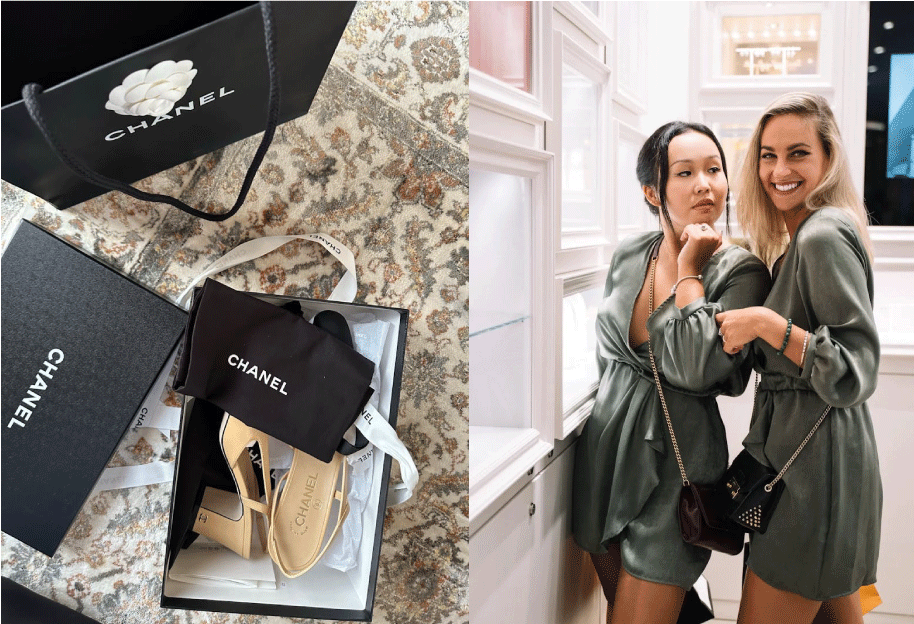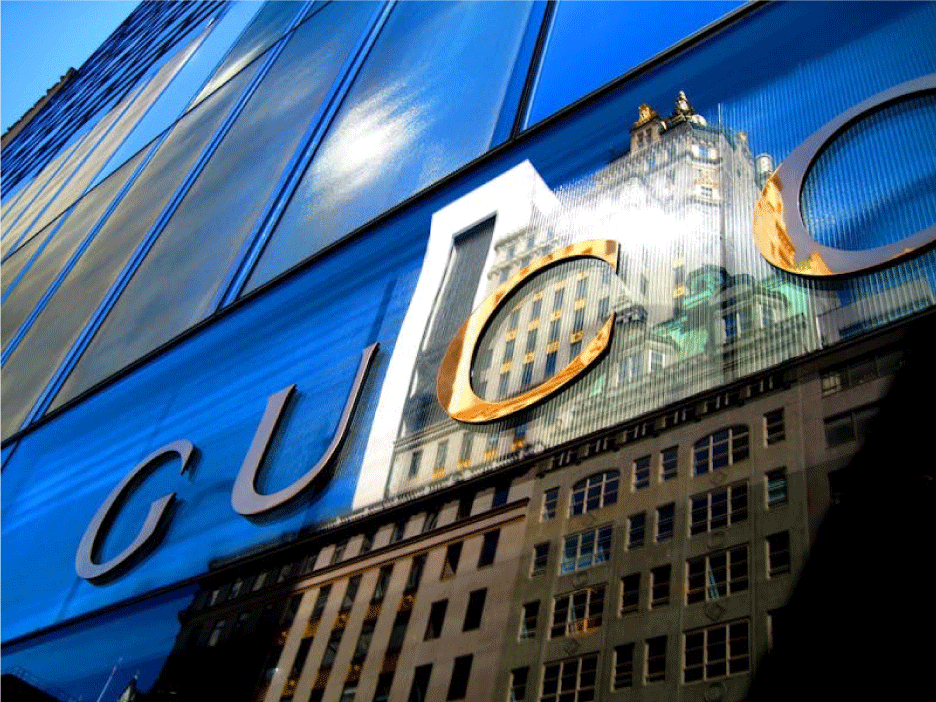In the glitzy and fast-paced world of luxury fashion, understanding the psychology of luxury consumers is crucial for businesses looking to thrive in an ever-evolving retail landscape. From exclusive designer handbags to high-end perfumes and cosmetics, the luxury market continues to capture the imagination of affluent customers. But what drives consumers to make such significant investments in luxury goods?
The psychology behind purchasing luxury items is complex and multi-faceted, influenced by various emotional, social, and psychological factors. Whether it’s a desire for status, emotional fulfilment, or a longing for unique craftsmanship, understanding these motivations can provide businesses with the insights they need to tailor their offerings and build lasting relationships with their customers.
In this blog post, we explore the fascinating world of luxury consumer behaviour, focusing on key psychological drivers and how companies in the UAE, particularly in cities like Dubai and Abu Dhabi, can leverage these insights to enhance their sales and marketing strategies.
Part 1: The Emotional and Psychological Drivers of Luxury Purchases
The Quest for Prestige
Luxury goods are often seen as symbols of success, wealth, and social status. For many consumers, purchasing luxury items is not just about the product itself but about the prestige it confers. High-end brands like Louis Vuitton, Chanel, and Rolex are synonymous with social status. The psychology of luxury consumption suggests that owning these items is a way for individuals to communicate their place in society.
In cities like Dubai, where status and wealth are highly valued, luxury goods serve as important symbols of distinction. This is particularly true in a competitive marketplace where consumers are constantly looking for ways to differentiate themselves. Learning and development in the luxury sector has thus become crucial, as brands are increasingly focused on equipping their teams with the skills to understand these nuanced consumer behaviours and offer products that resonate with these psychological needs.
The Emotional Landscape of Luxury Purchases
For many, purchasing luxury items is an emotional journey. When consumers acquire luxury products, they experience a surge of happiness, pride, and fulfilment. These purchases offer not just tangible goods but also emotional satisfaction—rewarding customers with a sense of indulgence and personal achievement. Research on sales training has shown that luxury consumers are often looking for an experience that transcends the transaction, which is why effective customer service and product knowledge are key to closing sales in the luxury sector.
Emotional engagement plays a critical role in luxury brand loyalty. Brands that can provide this emotional connection are more likely to cultivate long-term relationships with their clients, as opposed to merely transactional interactions. For instance, offering perfume and cosmetic training to sales teams ensures they can speak to the emotional and sensory pleasures that luxury perfumes and cosmetics provide, thus enhancing the customer experience.

The Influence of Brand Reputation
A luxury brand’s reputation plays a significant role in shaping consumer perceptions. The ‘halo effect’, where positive associations with a brand enhance the perception of all its products, is a powerful tool in the psychology of luxury goods. For example, when people think of a brand like Rolex, they automatically associate it with precision, excellence, and luxury.
For businesses operating in luxury markets like Dubai and Abu Dhabi, luxury brand training for their teams is essential. Understanding how brand reputation influences purchasing decisions allows salespeople to craft more compelling narratives around their products. The role of reputation in driving consumer behaviour is particularly pertinent in cities where there is a high concentration of high-net-worth individuals who are constantly on the lookout for brands that offer a sense of exclusivity and prestige.
The Rarity Factor
Scarcity plays a major role in the allure of luxury goods. Brands often create limited editions, rare collections, or exclusive products to fuel demand. The psychology behind this is rooted in the principle of scarcity—people desire things more when they are perceived as limited or hard to obtain.
In the UAE’s competitive luxury market, exclusivity drives desirability. Luxury brands like Chanel or Gucci employ scarcity marketing strategies that increase perceived value. Team building exercises in luxury sales training often centre around teaching staff how to communicate the unique selling points of these rare, high-demand items effectively to customers.
Fashion as Identity
For many consumers, luxury fashion is not just about aesthetics but about self-expression. Luxury items allow individuals to communicate their personal identity, style, and social affiliation. A person wearing a bespoke suit or carrying a limited-edition handbag is making a statement, not only to others but to themselves.
The psychology of fashion as identity is particularly relevant in cities like Dubai, where fashion is not just a personal choice but a statement of one’s place in society. For this reason, learning and development programs that focus on the power of personal branding and the role of luxury items in crafting an identity are essential for luxury brands in these markets.
The Allure of Craftsmanship
Luxury products are renowned for their superior quality, craftsmanship, and materials. These elements are integral to the psychology of luxury consumption, as customers not only appreciate the beauty of the items but also the story of the craftsmanship behind them. The intricate design and attention to detail in a luxury item, whether it’s a luxury perfume or a cosmetic product, adds another layer of appeal.
Consumers in markets like Dubai and Abu Dhabi are often highly educated about the craftsmanship behind luxury goods, making it essential for brands to have a deep understanding of their products and be able to communicate this knowledge effectively. Perfume and cosmetic training for retail staff can help them communicate the artistry behind these products and connect with customers on a deeper level.

Part 2: Understanding the Luxury Consumer
Status and Social Identity
Luxury consumption, especially in cities like Dubai, is often closely linked with social identity. The desire to signal wealth, success, and exclusivity is a key driver for purchasing luxury goods. For brands to succeed, it is essential that their products are positioned in a way that reinforces these values.
Team building within luxury brand training should therefore focus not only on enhancing product knowledge but also on fostering a strong understanding of the customer’s desire to affirm their social standing through their purchases. Understanding the role of social identity in luxury consumption can provide insights into consumer preferences and help brands tailor their marketing strategies accordingly.
Hedonic Pleasure and Emotional Fulfilment
Luxury products often promise a form of hedonic pleasure—sensory indulgence that goes beyond mere functionality. For instance, purchasing a high-end perfume is not just about the fragrance but about the experience and pleasure it provides. Sales training that teaches staff to highlight the sensory experience of luxury goods can create emotional connections with consumers, turning one-time buyers into repeat clients.
Symbolic Meanings and Aspirational Values
Luxury brands often carry with them symbolic meanings and values that resonate deeply with consumers. Whether it’s the heritage and tradition of a fashion house or the innovative design of a luxury car, these symbolic attributes elevate the status of the brand and the products it offers.
For businesses operating in luxury markets like Dubai, it is crucial to train teams in luxury brand training that not only focuses on product features but also on the broader brand narrative. Storytelling around the symbolic meanings of a brand can further enhance customer loyalty and foster long-term relationships.
Personalization and Self-Expression
One of the most significant motivations for purchasing luxury goods is self-expression. Luxury products offer a platform for customers to showcase their individuality and tastes. In the UAE, where personal branding is increasingly important, providing customized or bespoke options can elevate the customer experience and create a deeper connection with the brand.
Luxury brands in Abu Dhabi and Dubai can offer personalized perfume and cosmetic training to their staff, teaching them to appreciate the personal connection that customers form with their products. By offering customization options, businesses can differentiate themselves in a crowded market and strengthen customer relationships.
Conclusion
The psychology of luxury consumer behaviour is shaped by multiple, interwoven factors—from social status and exclusivity to emotional fulfilment and self-expression. In markets like Dubai and Abu Dhabi, understanding these psychological drivers can give brands a competitive edge and help them build meaningful, long-term relationships with affluent clients.
To succeed in this competitive landscape, businesses must invest in learning and development, sales training, and team building to ensure their staff can not only sell luxury products but also understand the deeper psychological motivations behind the purchases. By offering unique experiences and emotional satisfaction, brands can turn one-time transactions into long-term client relationships, ensuring sustainable growth in the ever-changing luxury market.
Understanding the psychology of luxury consumption is essential for brands seeking to stay ahead of the curve and meet the evolving needs of the luxury consumer in the UAE.


